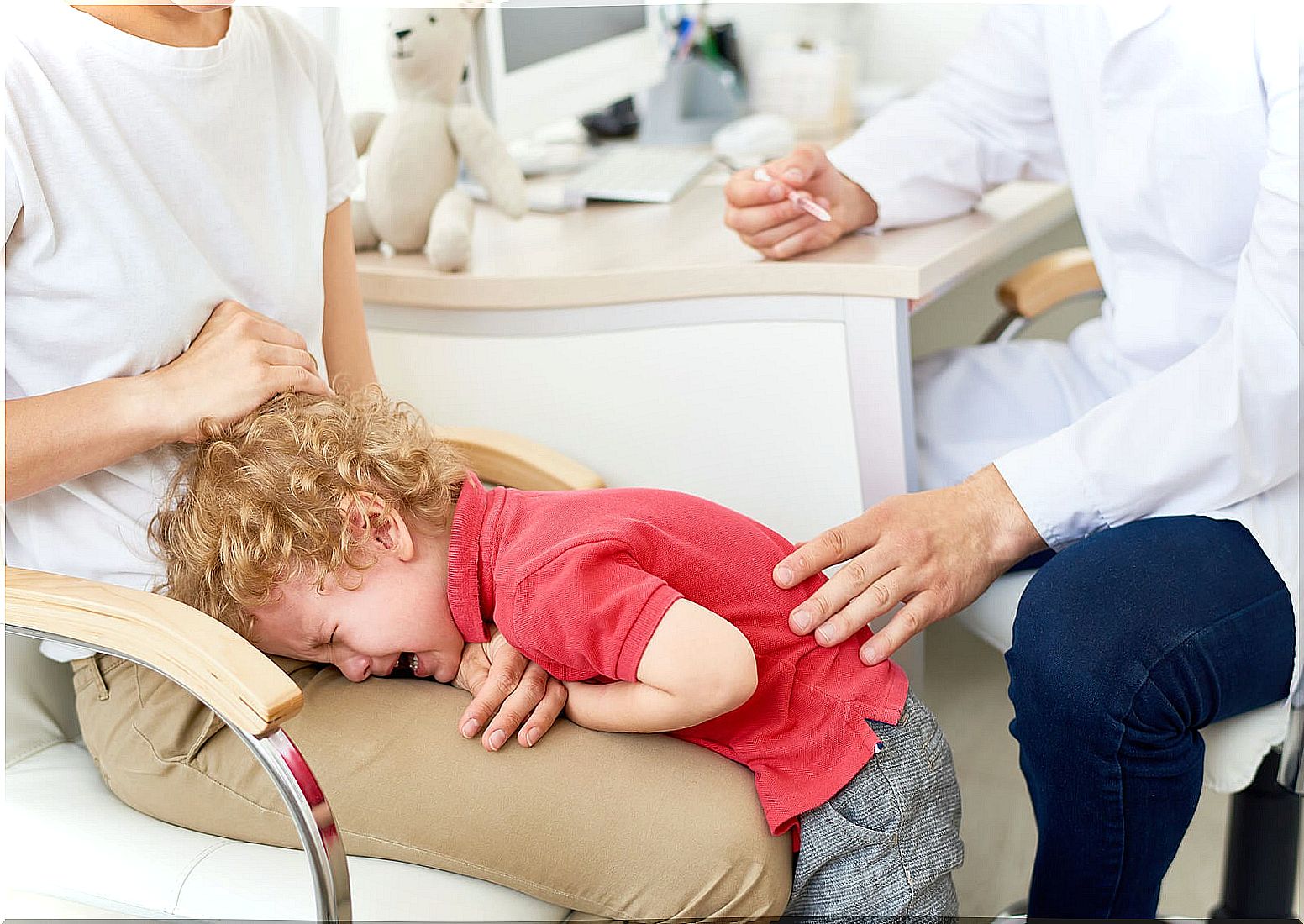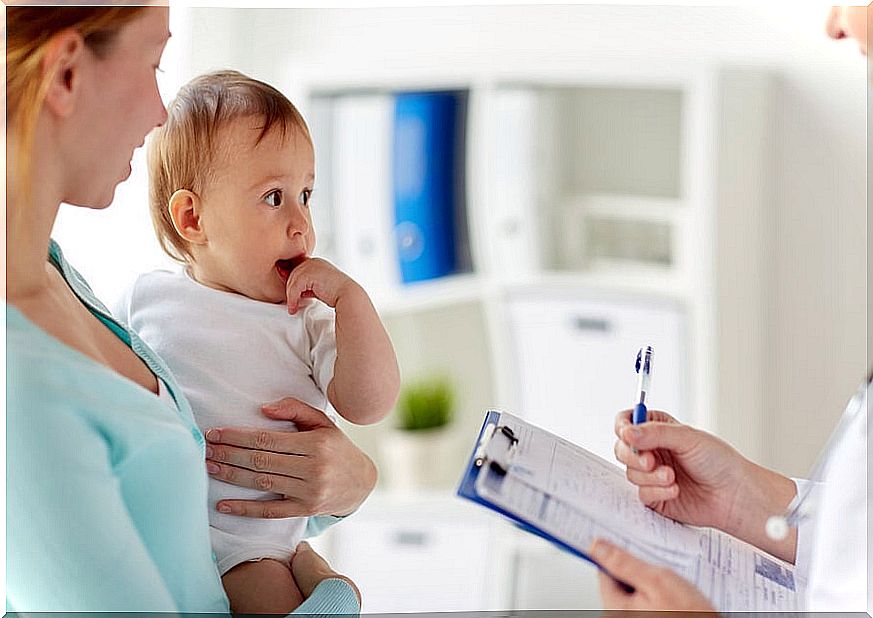Fear Of The Pediatrician: Why Does It Happen And How To Act?

During the first months of the baby’s life, routine consultations with the pediatrician take place as a means to control that the little one is developing correctly. Later, this will probably only happen when the child is unwell. However, sooner or later, many children develop a fear of the pediatrician that makes visits distressing for them and their parents.
This fear can really be a problem, since the little one will need to see a doctor several times throughout his childhood. Perceiving the pediatrician as a threatening figure can make examination, diagnosis and treatment extremely difficult, as well as causing unnecessary anxiety for the child. Therefore, it is important that we act when we detect red flags.

How does fear of the pediatrician manifest?
It is easy to identify when a child is afraid of the pediatrician, since their reactions are usually quite clear and striking. The little ones cling to their mother’s arms and hide in her when the pediatrician tries to get closer.
They often cry and scream to prevent the doctor from touching or exploring them. They are restless and anxious throughout the consultation.
Also, as they get older, they begin to be aware of where they are going even before they get to the medical center. For this reason, symptoms of anxiety and nervousness start early. The same happens with older children who are informed that they are going to attend the consultation.
Why happens?
Next, we are going to see some causes that can originate the fear of the pediatrician in the little ones.
Uncertainty
The causes of fear of the pediatrician are diverse and depend on the age of the child. In the first visits to the doctor, the most likely cause of the child’s fear is uncertainty.
The environment is unfamiliar and the pediatrician is a stranger who does not know what to expect. Therefore, their reaction may be fearful, especially if the child has an inhibited or withdrawn temperament.
Association
On the other hand, when you have already been to the medical consultation several times, it is very possible that you will begin to make associations. If you were vaccinated at the medical center, looked at your throat with a tongue depressor, or caused some kind of damage or discomfort, you will remember.
Thus, the next time you are in the pediatric consultation or are aware that you are going to attend it shortly, your alarms, your concern and your fear of suffering again will be awakened.
The paper of the parents
In addition to all of the above, in many cases part of the responsibility falls on the parents. Let us remember that they are the figures that children trust the most and from whom they obtain references to interpret their environment. Thus, the way parents talk about the pediatrician has an impact on the child. Just as influences the state of mind that parents show before and during the medical consultation.
That is, if the parents perceive the visit to the pediatrician as a negative event, if they experience it with anguish, it will be transmitted to the children. If the mother believes that her child will be harmed and suffers for it, the little one will perceive and share her fear and suffering.

Likewise, if the figure of the pediatrician is used to threaten the child before his bad behaviors, we will be contributing to create a negative image. Let’s avoid making statements like: “If you don’t eat your vegetables, the doctor is going to prick you.”
How to act in the face of fear of the pediatrician?
The pediatrician’s attitude towards the child has an important influence on overcoming his fear. The fact that he is loving, patient and close is very positive. Therefore, try to choose a pediatrician who gives you security.
On the other hand, review your own fears and feelings about taking your little one to the doctor; Remember that he will share your emotional state, so try to convey calm, serenity and confidence in the professional.
Also, if the child is old enough, you can explain what will happen in the appointment to reduce their uncertainty. Help him manage his nervousness with your own calm, love, and understanding, and congratulate him on every little progress. Over time, the fear will go away, but if you don’t, it is best to seek professional guidance.










